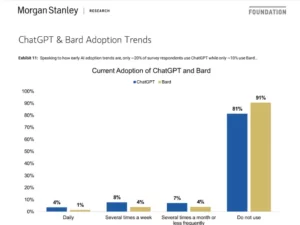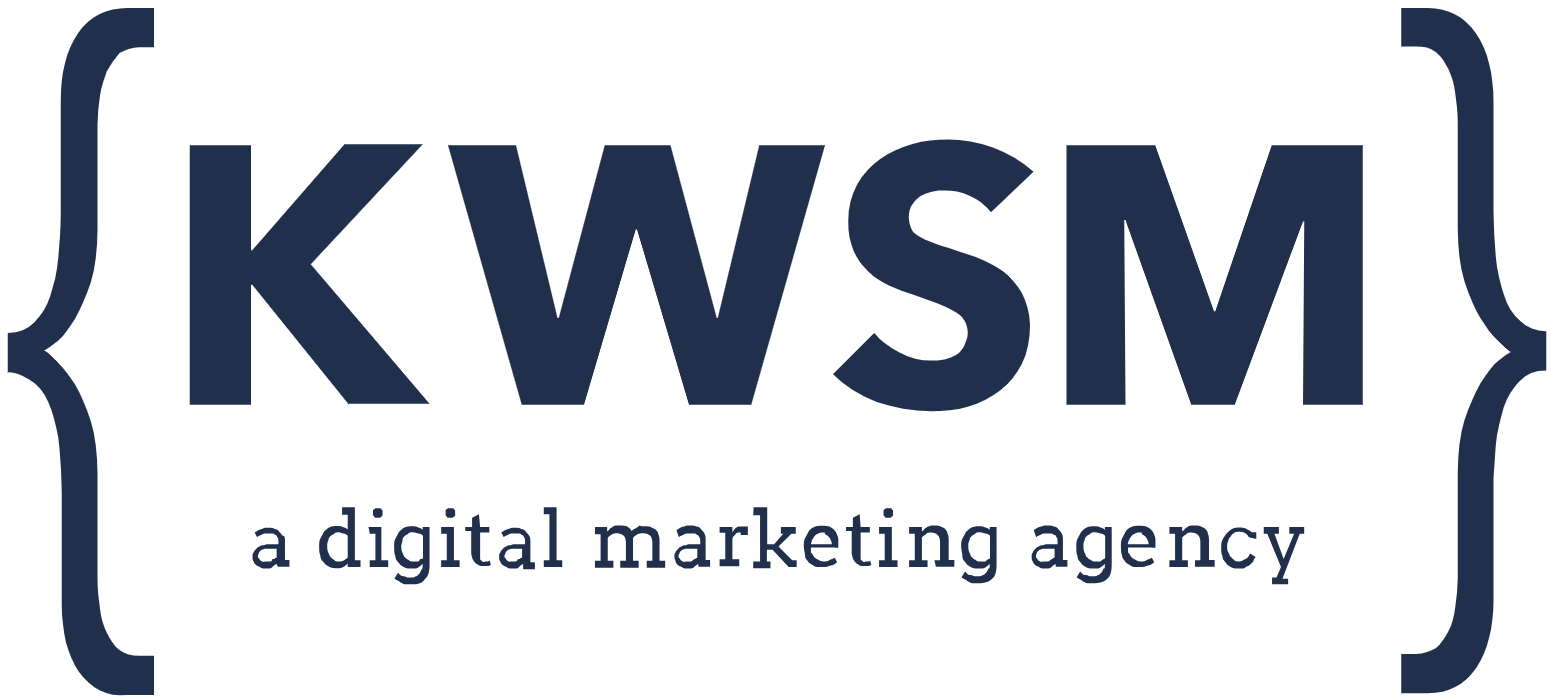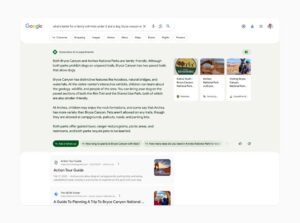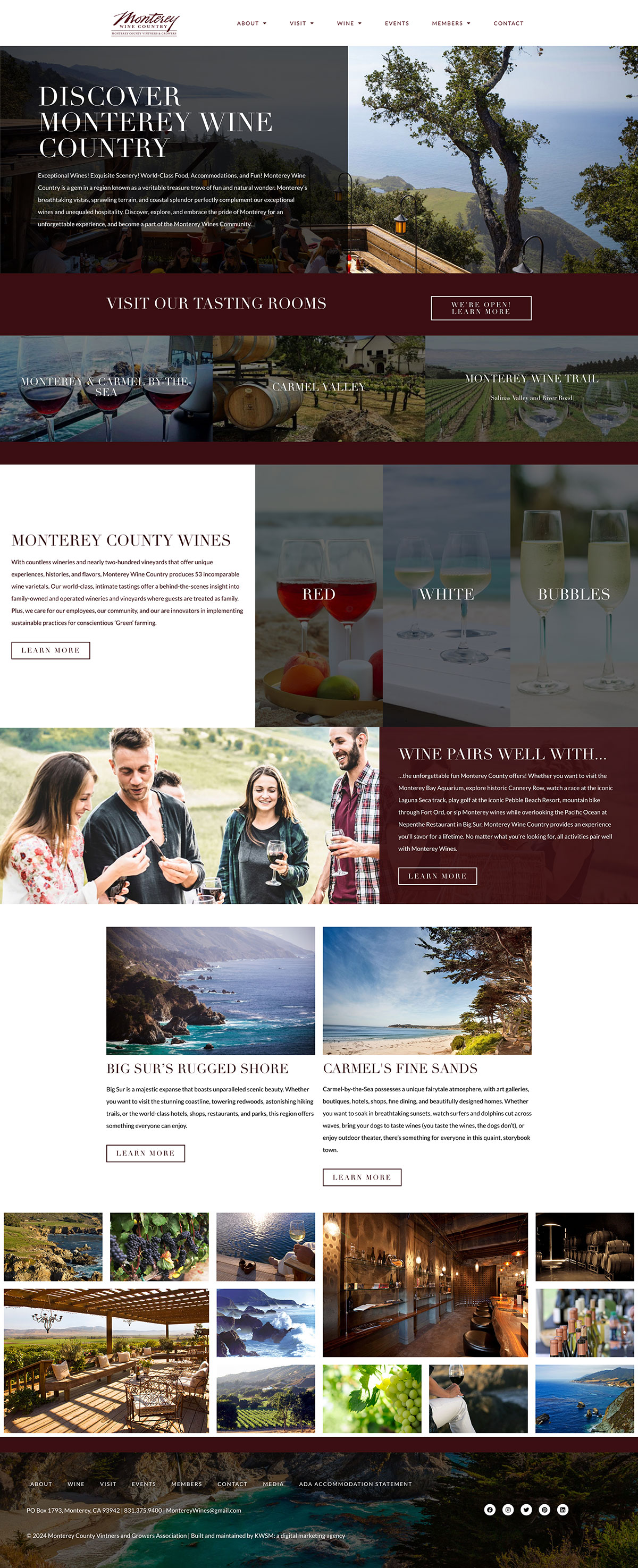
There has been a lot of hyperbole, speculation, and faulty assumptions about AI’s role in Search as both Google and Bing create AI-enabled Search and Chat properties. Does AI, like Bing-GPT or Google’s SGE, kill SEO and content? As the VP of Strategy at KWSM, I went straight to the source – Michael Schechter, VP of Growth and Distribution for Microsoft, and Cathy Edwards, VP of Google Search, who spoke at the recent SMX Advanced online conference and explained how AI helps your content shine.
Schechter and Edwards were very definitive in their responses. They discussed AI and how it relates to content creation, SEO, and the Search experience for users in the SMX Advanced session, AI and the evolution of Google and Bing search: What you need to know now, led by one of my favorite SEOs, Barry Schwartz, SEO Editor of Search Engine Land.
Will Bing AI Chat GPT Kill SEO and Online Content?

Schechter started out by saying that Bing’s Search always existed with flaws in specifically answering a query, and AI helps reduce those flaws to give you more results that match your true intent. He says that the core science behind AI, or its Large Language Models (LLM), helps identify intent. AI assembles the information on the internet to match more of your search.
There is a misconception that AI will eliminate link clicks to websites, and Schechter assures that there are still citations even with GPT in Search. He says that the new Bing Search experience mixes the LLM with the web results. Schechter says, “Not having links was never on the table; we are a search engine that rewards great content.”
Content creation and SEO aren’t going anywhere. Schechter says because AI and GPT deliver better results, it encourages content creators and journalists to deliver trustworthy search results. He says the UI includes higher-quality traffic to both organic content and ads, and the best practice for content creation for clicks within Bing GPT is to create great content that connects with your customers. “This is still Search; build great content, and we will get it in front of people searching for it,” Schechter shared.
Building great writing and video content has been the core focus for KWSM: a digital marketing agency’s digital marketing strategies for the last 13 years, and we are excited by these advancements in Search. Unfortunately, we are seeing a lot of people using AI or asking about using it as a shortcut to write content. From what we see, for now, that may not be a wise decision. To successfully rank, creators, including those at KWSM, must focus on high-quality and valuable content that ties together specific information and personal experience to meet the criteria that Search algorithms are looking for.
The greatest takeaway from the session was that Schechter shared that between Bing’s GPT Search and Chat, Bing is sending out more clicks than ever before.
Does Google’s AI Search Hurt Your SEO?
I was curious if we’d see a different positioning of AI-assisted Search with Google, but Edwards delivered very similar details. She says that Google’s Search Generative Experience (SGE) is “transformational and will make the search experience better.” Taking it deeper, she says, “(SGE) helps publishers get found.”
Edwards explained that Search with AI creates a better experience and helps content producers following the EEAT (Experience, Expertise, Authoritativeness, and Trustworthiness) format thrive.
How Does Google’s SGE Work?
Edwards says, “The person makes a query, and we find the best content for the search like we normally would using the same ranking criteria. We create a new snapshot that organizes the information. We want users to engage with links in a more helpful way.”
Edwards destroys the notion that Search will be a link-limited or link-less experience. She says links will allow people searching to go deeper. What does this mean for KWSM clients? By following this EEAT format for years, KWSM has created content for itself and clients that AI will latch onto. After all, AI in Search aims at providing answers that are guided by real people and real publishers. The content that KWSM has created for clients will fit the criteria used by AI to rank information. Edwards says, “Google Search relies on the health of the open web to help users in their Search journeys” and that the “health of the open web is at the front and center” of Search.
One example she gave was someone searching for a specific National Park, which would typically offer different types of results. Information on the page for that national park could show up at the top of the results, but mixed in with those results could be someone’s personal experience they have shared. Edwards says there are benefits to both, as people want to receive information from both.
Edwards says delivering this type of Search experience from a wide variety of content publishers is critical for maintaining the health of an open web.
When asked by Schwartz about the future of content indexing to quash fears that content would be irrelevant, Edwards answered, “SGE wouldn’t be successful if we didn’t index content.”
How should content be created?
The answer is to create content the way KWSM has been creating it for clients, following the EEAT model and sharing our clients’ experience, expertise, authoritativeness, and trustworthiness. What you say, what you’ve done in your profession, or what your products and services do for people are important in this new Search experience. The details have never mattered more.
Edwards says Search is still exciting – people can ask any question, no matter how weird or longtail, and access the breadth of the web, which will provide answers to these niche searches. She says regardless of SGE or traditional Search, there are no plans to change the way this works.
An Example of How LLMs or AI Helps Enhance High-Quality Content
I’ve shared a little bit of what each of the representatives from the major Search Engines says about Search. Now, I’d like to give an example of how things are different, what this means, and how KWSM creates content for clients.
Let’s say I wrote an article sharing my Nonna’s chicken parmesan recipe from the Emilia-Romagna region. Let’s also say that you’re really hungry and want to make chicken parmesan from that area of Italy for dinner. Writing this, I strangely have a craving for chicken parm. Naturally, you’d search for “chicken parmesan recipe.” Currently, search engines will deliver results in two ways, and both will likely limit my recipe from showing up in Search.
Content Limited By Faulty Results
The first list will include recipes for chicken parmesan. However, the results will also include recipes for dishes that have both chicken and parmesan cheese but may not be the actual chicken parm dish. Scrolling through just a few results, I found a Spaghetti Carbonara recipe, which includes both chicken and parmesan cheese but is not the right dish, and it’s a recipe from Rome, which is about 235 miles away. This is a challenge with existing Search. All of a sudden, I hear Obi-Wan Kenobi’s voice saying, “This is not the chicken parm recipe you are looking for?”
Content Limited By Domain Authority
The second way the results are delivered currently is with a focus on Domain Authority (DA). Your DA is like your internet score of importance, regardless of relevance. My recipe may be authentic from the old country, but the sad truth is that I am nobody in the culinary world. My DA would be a 1 to start. Because of that, massive publishers and syndicators of content will outrank me because they’ve published tens of thousands of articles, and I’ve only published 10. They might have a DA of 45. These content producers don’t even have to be culinary publications. Their volume will outrank my one recipe all day long.
AI-assisted Search changes that. It starts learning about your search query and delivers answers tailored to your Search. And if you are more specific, like searching for “homemade chicken parmesan recipe from Emilia-Romagna region of Italy,” you will likely find my recipe, which is truly a chicken parm dish and a recipe that comes from that region.
LLMs and AI help deliver better search results to provide people using Search to find the specific results that they are looking for. This is the true win for AI-related Search. This levels the playing field by rewarding content that is impactful and authentic. It also means my Nonna’s recipe will show up in Search!
(disclaimer – this is the chicken pre-sauce, cheese, and oven)
What does this mean for your content and the content of KWSM clients? Let’s explore further.
Should I Change Content Creation and SEO to Match AI Search with GPT and SGE?
KWSM has always written and will continue to write for clients with an approach to showcase their experience and expertise to answer a prospective client or customer’s needs.
While we use a traditional SEO-based strategy, we are also brand journalists, and storytelling is at the core of our content strategy. Many of our clients rank on the first page because we work with them in sharing their authentic stories. As AI-based Search begins highlighting more specific answers to queries, it will rely on curating the most credible content available.
Here’s a reminder of what the Search and SEO engineers said in the presentation.
Schechter shared that for AI and GPT to deliver better results, it encourages content creators and journalists to deliver trustworthy content for those results. Edwards echoed that by saying SGE makes the search experience better by taking it deeper and helping content get found. SGE will offer those searching the best content for the search like we normally would using the same ranking criteria.
In other words, keep on trucking. And why wouldn’t we?
Each step of the way, we are looking at our existing content and newly published content to see how our rankings move. KWSM’s clients continue to trend in the right direction. This is not the case for content creators who may be gaming the system, creating a network of bad backlinks, or keyword stuffing. SEOs are reporting a drop in their clients’ website behavior with each platform update.
We are proud to create authentic content by taking a brand journalism approach to content creation. KWSM and our clients will be optimized to see growth as AI-based content grows with Bing GPT or Google SGE.
Are People Actually Using AI Search?
For those who may be wondering about the use of AI Search, we can tell you that Bing’s GPT products, both platform and plug-ins, have been in place for several months. Google’s SGE is only available in test form currently. So, the answer to your million-dollar question: Are people using AI Search?
Not as much as you may think, according to Morgan Stanley Research.
In a Business Insider article published on June 8, writer Monica Melton answered that question with the results of a recent Morgan Stanley survey of 2,000 people. The survey found that only 19% had used Bing’s GPT-related AI product, and only 9% had used Google’s new SGE.

Of course, the adoption rate is increasing, and it’s hard to really understand what the numbers look like a couple of months after the survey. We would expect continued adoption as time goes on.
Do I need SEO and Content Strategy?
Yes!
The demise of SEO or Content Creation is greatly exaggerated. It’s popular for AI enthusiasts to shout from the rooftops of LinkedIn that AI is killing content. In reality, AI really only enhances your Search and SEO strategy.
If you create quality content and provide specific solutions and answers, AI will find you. Let’s hope AI from Bing or Google is tenacious like Liam Neeson.
There may be ways for AI to help you in your marketing process, but starting with authentic content will always be the key. KWSM’s account managers and copywriting team are brand journalists that build relationships with clients and learn their products and services intimately.
Oh, and we ask a lot of questions, because that’s what journalists do!
Do you have questions?
Do you want to know more about SEO, Content Strategy, AI-based Search from Bing or Google, or Brand Journalism? We’re happy to discuss your small and mid-sized business or organization’s marketing. Fill out the form below, and we will be in touch soon.












